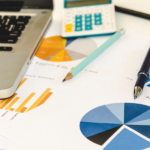David Solomon, CEO of Goldman Sachs (NYSE:GS), has voiced his expectations for a strong year of dealmaking in 2025, suggesting that the activity could surpass the past decade’s averages. This projection comes at a time when there is a growing sense of optimism in the business community following recent political developments in the United States. Solomon’s remarks highlight the potential for significant economic activities and investment opportunities, particularly in equities and mergers and acquisitions.
Goldman Sachs has previously navigated fluctuating market conditions by leveraging its investment banking prowess. The recent election of Donald Trump has sparked optimism for a more favorable regulatory landscape, fostering an environment that could lead to increased business transactions. However, the specifics of the administration’s economic policies remain uncertain at this early stage. Historically, such shifts in political leadership have influenced market dynamics, and stakeholders are keenly observing how these changes may affect future dealmaking.
What Does 2025 Hold for Dealmaking?
Solomon believes 2025 will witness activity levels that align with or exceed those seen over the past ten years.
“I think in 2025 we will certainly be at 10-year averages. We might even be ahead of the 10-year average,”
he mentioned during the Reuters NEXT conference. This positive outlook is buoyed by the anticipation of a pro-growth agenda under the new administration, which could stimulate various economic sectors.
How Is Political Climate Impacting Business Sentiment?
The business environment is currently observing Trump’s political appointments and their implications for regulations. The nomination of David Sacks, known for his regulatory skepticism, as the AI and cryptocurrency czar, highlights a possible shift toward less restrictive policies.
“He will ensure the United States is at the cutting edge of innovation,”
Keith Rabois of Khosla Ventures noted, reflecting hopes for a more supportive technological and business landscape.
The recent performance of Bitcoin, surpassing the $100,000 mark, underscores the potential impact of regulatory changes on digital assets. This surge followed Trump’s selection of Paul Atkins, a crypto advocate, to lead the SEC. Such developments could catalyze increased investment and exploration in the crypto domain, although Goldman Sachs maintains a cautious stance due to current regulatory restrictions.
Solomon reiterated the limited capacity of Goldman Sachs in dealing with cryptocurrencies under existing regulations.
“That’s a question you have to ask regulators. At the moment, as a regulated banking institution, we’re not allowed to own a cryptocurrency like Bitcoin as a principal,”
he stated, acknowledging the constraints faced by financial institutions in navigating this emergent market.
Looking ahead, the potential for increased dealmaking activities in 2025 provides a forward-looking perspective on economic growth and business development. While the political climate may influence regulatory frameworks, companies like Goldman Sachs are positioning themselves to capitalize on these emerging opportunities. Stakeholders should remain attentive to policy shifts and their implications for future market conditions, as these will be critical in shaping investment strategies and economic prospects.










